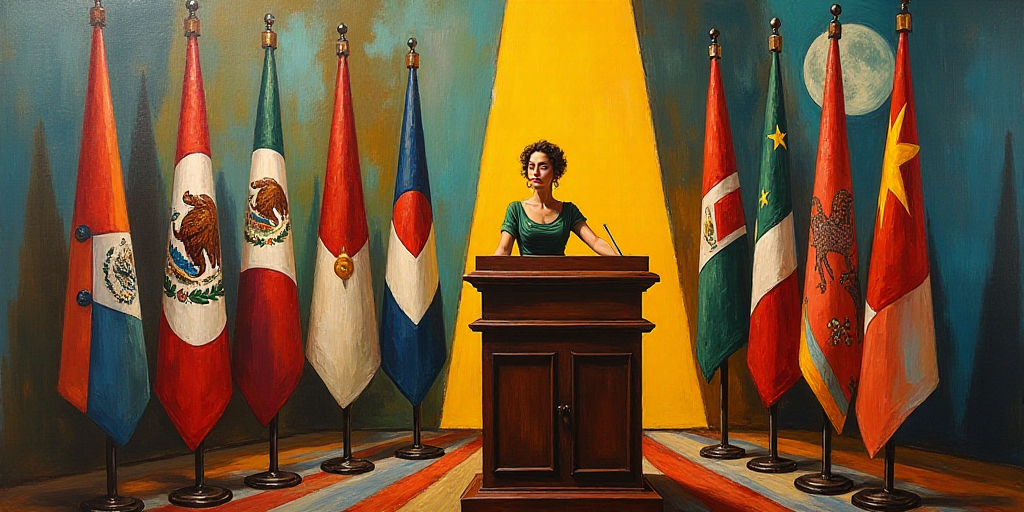Background and Key Players
The recent disagreement between Mexico’s government and the U.S. Drug Enforcement Administration (DEA) over “Project Portero” stems from political and ideological strategies rather than technical security debates, according to experts. The dispute highlights the differing narratives between the two countries regarding crime and security.
Claudia Sheinbaum, Mexico City’s president, asserted that there is no agreement with the DEA to combat crime. In response, the U.S. embassy in Mexico emphasized that common problems require joint solutions.
Expert Opinions
Alberto Guerrero Baena, a researcher at Causa en Común’s National Guard Observatory, stated that security should not be ideologized and requires a balanced technical perspective based on data. He acknowledged the stigma against the DEA, inherited from López Obrador’s administration, but emphasized that cooperation is necessary to tackle organized crime.
Guerrero Baena proposed the creation of a Binational Intelligence Center with mixed personnel from both countries, enabling information exchange and coordinated joint operations under a shared decision-making table. He also challenged the political use of sovereignty arguments and noted that the discourse about public opposition lacks substance if citizens are not genuinely consulted.
Carlos Rodríguez Ulloa, a UNAM academic, explained that the episode reveals three distinct agendas: the U.S. focus on political messaging to its electorate and federal agencies, the Mexican emphasis on controlling internal discourse under sovereignty principles, and the diplomatic agenda evident in the U.S. embassy’s immediate response following President Sheinbaum’s clarification.
Despite discursive tensions, Rodríguez Ulloa stressed that each country should operate within its territory, as unilateral U.S. intervention in Mexico would be “costly” and unnecessary.
Key Areas for Bilateral Cooperation
Experts consulted mentioned that, in addition to drugs, weapons, and money laundering, a comprehensive agreement should include strategic complementary topics such as:
- Joint management of customs to curb illicit traffic and enhance border security
- Exchange of operational and strategic intelligence
- Joint investigations and coordinated operations against transnational networks
- Cooperation in migration control and combating human trafficking
Rodríguez Ulloa highlighted that a technological agreement could be the pivotal element in this collaboration.
Key Questions and Answers
- Q: What caused the recent disagreement between Mexico and the DEA? A: The disagreement stems from political and ideological strategies rather than technical security debates.
- Q: What are the key areas for Mexico-US cooperation in security? A: Areas include joint customs management, intelligence exchange, investigations and operations against transnational crime networks, and cooperation in migration control and human trafficking.
- Q: How do experts view the role of sovereignty in this context? A: Experts like Guerrero Baena challenge the political use of sovereignty arguments, emphasizing that genuine citizen consultation is necessary.






